Naming. It’s a process. But weirdly, we don’t talk about that process very much. We’re more likely to talk about the creative inspiration behind a name. Its Latin root. The Mesopotamian god of cheese it alludes to.
That’s all great. But it doesn’t really teach us anything about how to name. So when Jamie and I were invited to speak at CopyCon this year, we decided to talk about the naming process. And we’ve handily summarised it for you below.
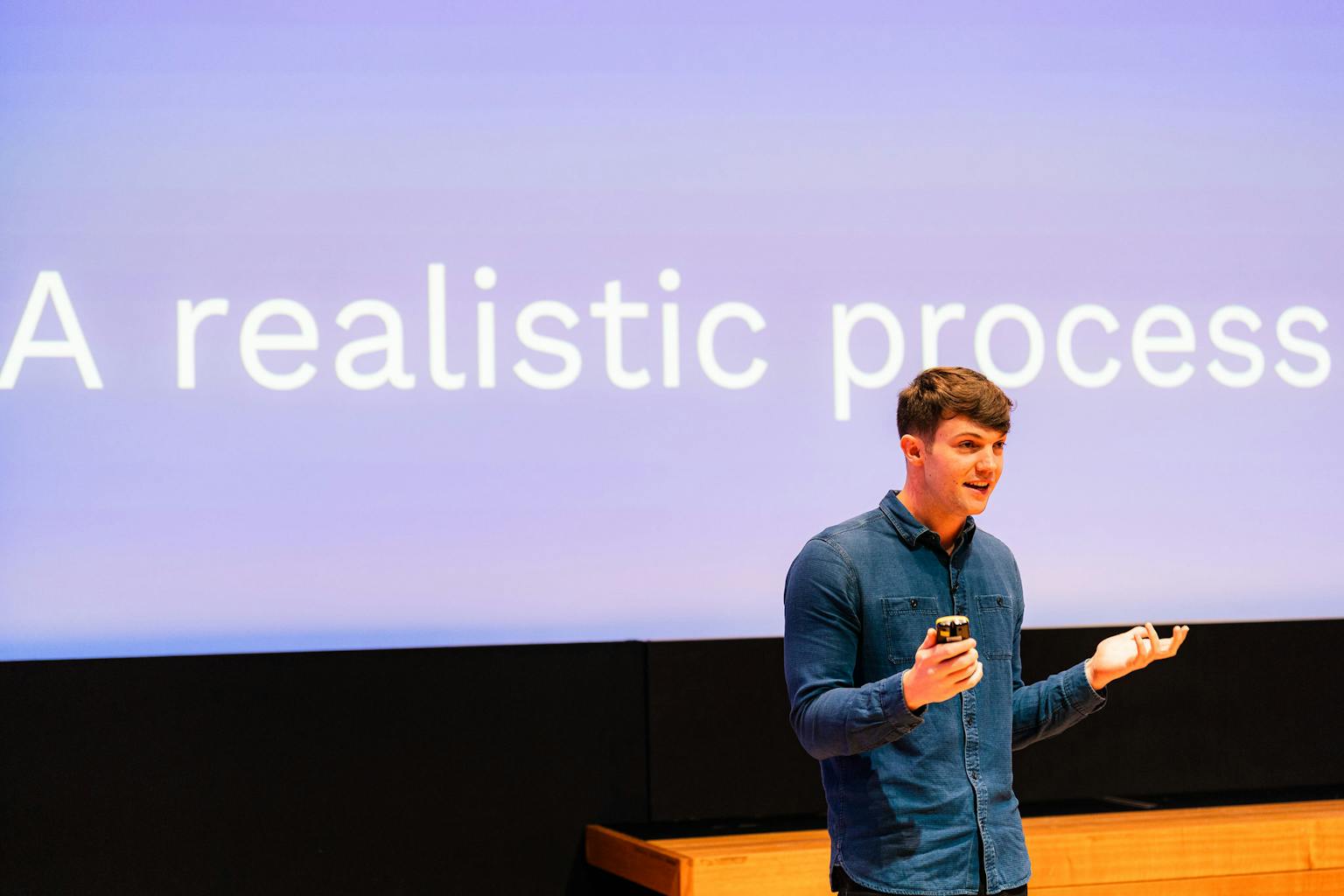
Jamie speaking
We are all natural namers
Naming is something we've all been doing, innately, since we were kids. Maybe you named your first pet. Coined nicknames for your mates. Had a funny word for the TV remote that only your family gets. Naming comes to us easily. Until it’s our job.
Then, suddenly, there’s a timeline, deliverables, money at stake. It’s often the thing holding up the rest of the process. (“We can’t do the logo until we have a name.”) It can restrict your creativity. It can feel frustrating. It can kinda suck.
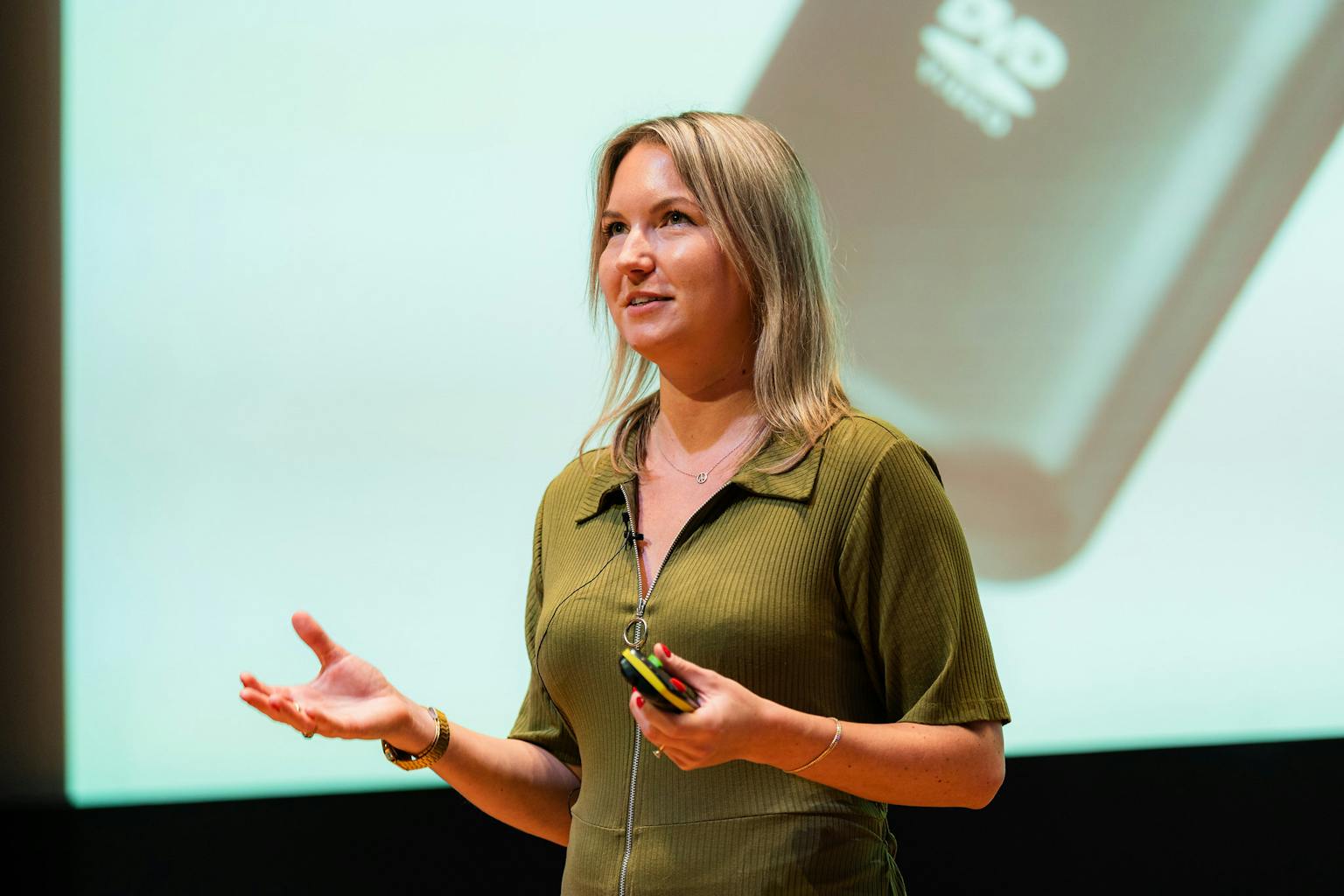
Orlaith speaking
Names matter and they also don’t matter
The process of naming becomes pressured and fraught when we put too much importance on the name.
Names matter, of course they do. They’re how brands enter our language – and sometimes even become generic terms (Google, Velcro, Uber). They can express the core idea at the heart of a brand, or set its tone.
But names also don’t matter. Or at least they don’t matter as much as you think they do in the moment you’re trying to name something.
Your name will never matter as much as it does right now
In six months time, once the name’s out in the world, no one will care. It’ll just be the name.
It’s hard to convince yourself of this. It’s hard not to overthink, to kill ideas before they’ve had a fighting chance. But sometimes the “worst” names – the ones that you have to battle to get through the boardroom – are the best.
Take Liquid Death. On paper, it’s a terrible name. It suggests that drinking this water will kill you. But it’s brilliant, because it knows its market, and stands out from every other generic water brand on the shelf.
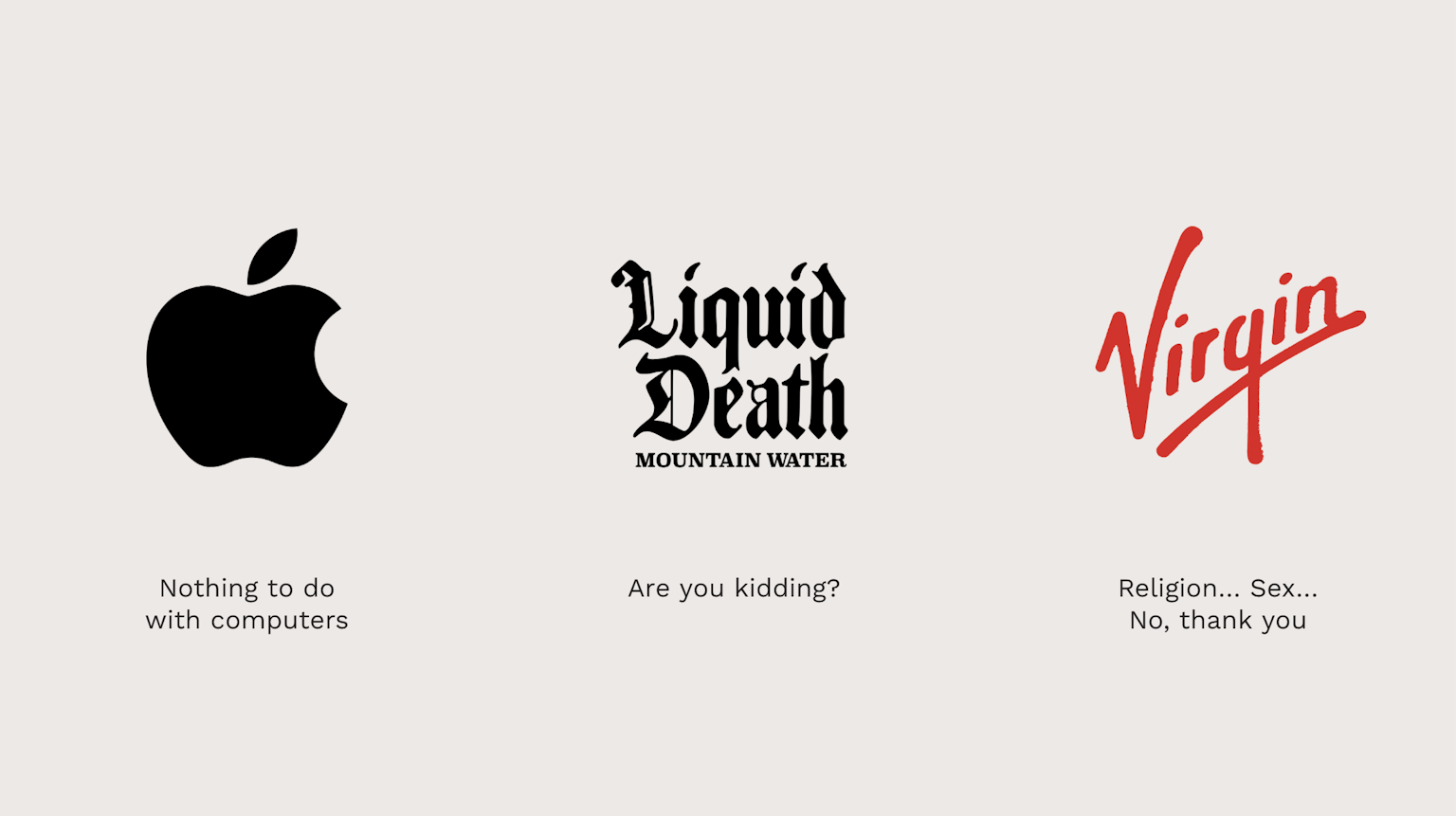
Names that shouldn't work,
There are so many names that shouldn’t work but do. Because once these names get out into the world, their negative associations melt away. They just become "the name". The world moves on.
It’s easy to say no to a name
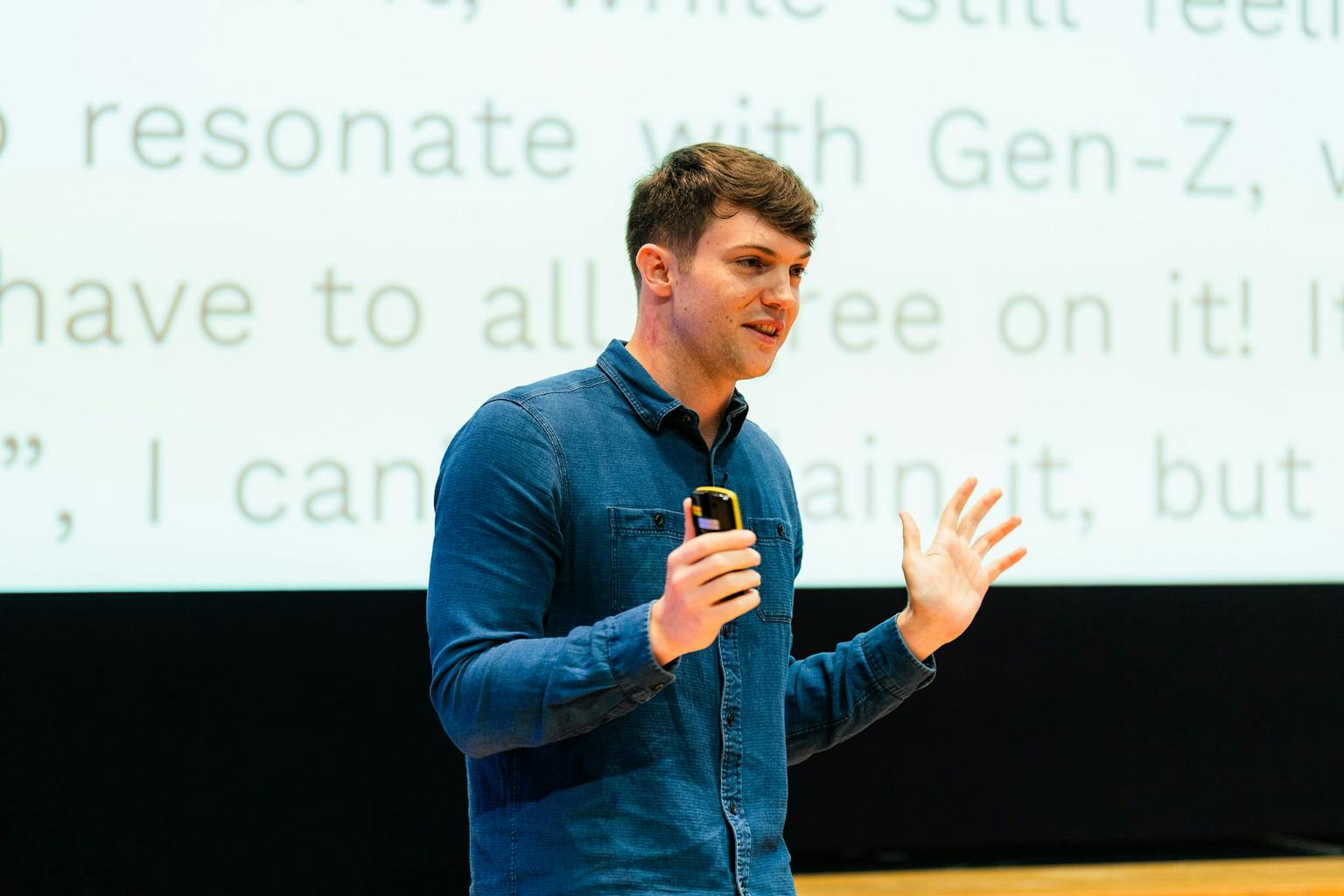
Jamie in action
It’s a psychological reality that we react negatively to new or different ideas. They make us tense up. We get overly cautious and rational. But giving yourself the freedom to be open minded, to sit with the names that make you feel uncomfortable, can lead to much more interesting results.
That starts with dispelling some naming myths.
Naming myth #1: your name will solve all of your problems
At the start of the process, it’s easy to lay out a long laundry list for what the name has to do. These expectations can start off quite reasonable, but very quickly build up to toxic levels.
Once you start layering on more and more requirements, eventually you reach a point where you’re no longer looking for a name.
You’re looking for a unicorn.
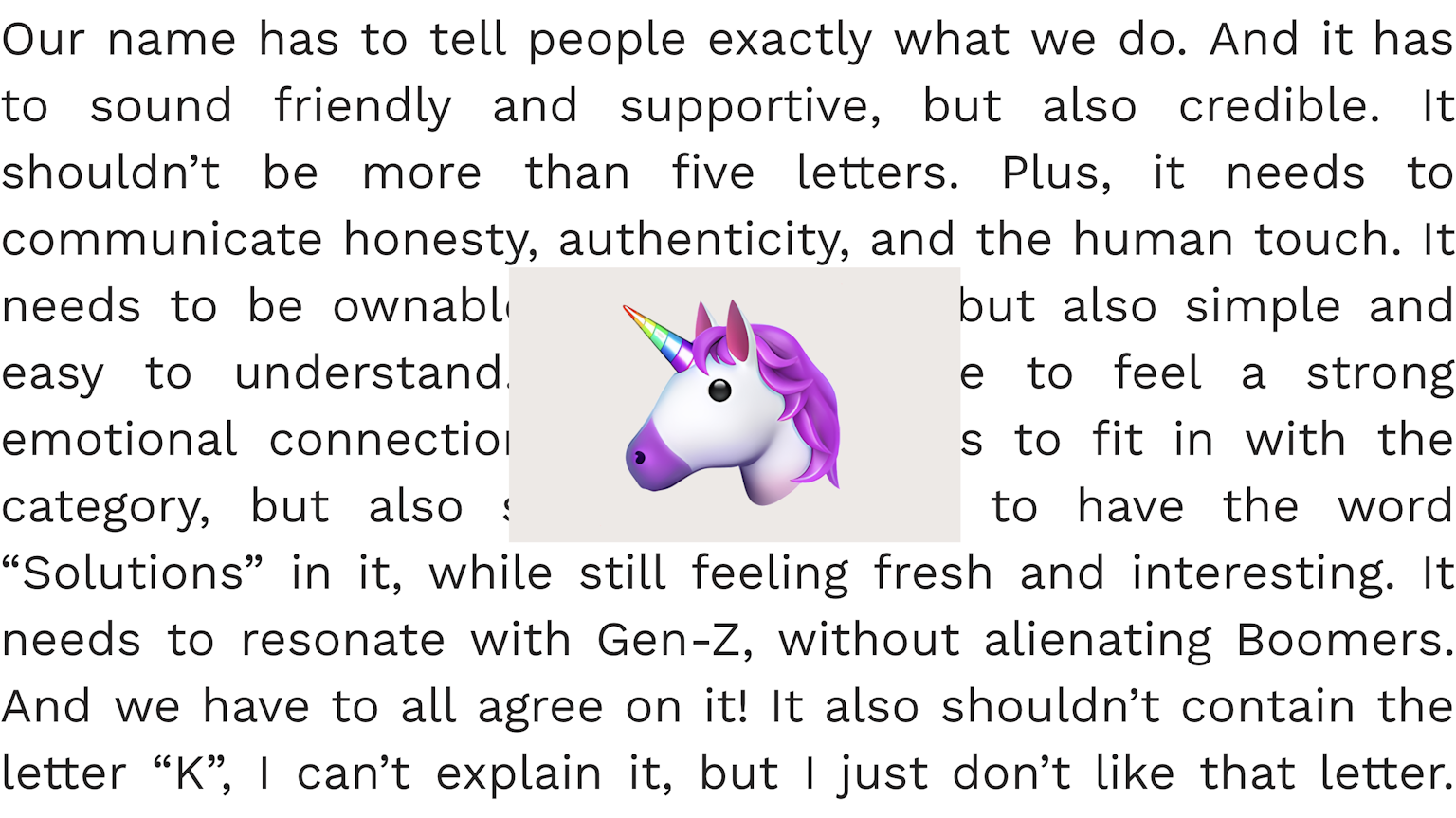
When naming criteria gets out
Because a name that does absolutely everything is a mythical thing. And everything you come up with will feel like a disappointment compared to this magical hypothetical name.
Naming myth #2: you have to get it right first time
It’s also easy to go into the process expecting a lightbulb moment. Where someone nails it in the first round with a name that’s so brilliant and perfect that you all start clapping and high-fiving each other. But it almost never happens like that.
Like any creative process, naming takes time. You need to give the ideas space to breathe. You need to give yourself the space to have ideas in the first place – to go for a walk, to try different naming exercises, to have a breakthrough in the shower.
It’s why our naming process includes three rounds of creative development as standard. This gives us time to explore, without the pressure. The right name might emerge in round one, or it might not, and that’s okay. We trust the process, and know we’ll get there in the end.
Taking time to sit with names and get used to them can help get them across the line. Names that felt strange and uncomfortable in round one sometimes start to feel safer and more familiar by round three.
Naming myth #3: the right name will speak for itself
When you first come with it, a name is just a few letters on a slide or – heaven forbid – in a spreadsheet. It has no world around it. It’s had no time to take on meaning. And without context, names crumble.
You can avoid that by unpacking the story of the name, and showing how it might live in the world. We do this by adding things like taglines or mini manifestos, or examples of how you might use the name in a sentence.
In just a few words, you can begin to surface the treasures within a name, and help it jump off the page.
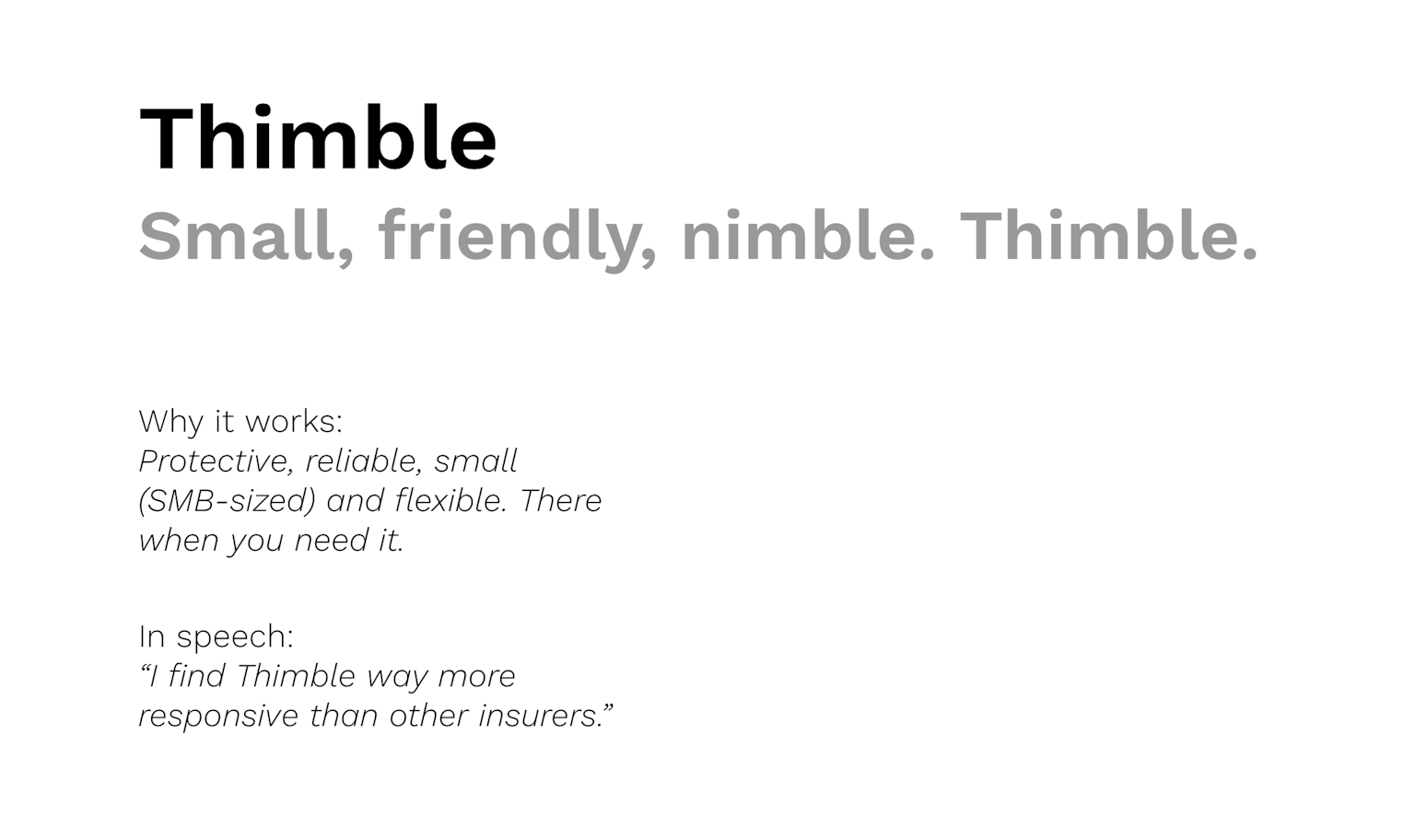
Behind the scenes peek at when we first presented the name 'Thimble'. (It's an old slide, please
Choosing a name is supposed to feel hard
Uncomfortable, even. You probably won’t know it when you see it. It takes a leap of faith. But a name that feels a bit strange at first is probably going to say more once it’s out in the world than a name that everyone signs off on because it’s fine and inoffensive.
Remember Liquid Death? They’re raking it in, thanks in part to their name – a name that probably scared the shit out of their early stage investors.
So don’t overthink and over-censor. Especially at the beginning of the process. Stay open to where the ideas take you. There might be something really special hiding in the mix that you’re just not seeing yet.
Be prepared to back yourself. Remember, if “I just don’t like it” is a valid reason for dismissing a name, then “I just like it” is a valid reason for keeping one.
And stop waiting for the silver bullet – that magical name that does everything.
Because you’ll be waiting forever.
You can watch the talk in full over on the CopyCon website.




